FROM THE DESK OF DEBORAH WEINSWIG
Since its birth at the turn of the 20th century, the US retail department store has steadily morphed, focusing ever more on apparel, accessories and cosmetics, with diminishing selling space allotted to general merchandise categories. By the end of the 20th century, specialty apparel retailers with a more specific style point of view targeted at smaller niche markets had evolved. Simultaneously, the way Americans dressed became even more casual, reflecting the lifestyles of the growing tech community of dot-com workers, where khakis and even flip-flops were accepted modes of dress. Youth retailers and women’s retailers flourished as they opened stores, generally provided better one-to-one service, and offered products and prices that were competitive.
Department stores responded to the threat from specialty retailers with promotions, and slowly eroded their businesses and the brands they offered. They consolidated while the channel contracted. For example, Macy’s is the sum of Federated and The May Company, and more than 20 department store banners that were once regional now sport the Macy’s moniker. In the meantime, on the supplier front, bridge brands such as Dana Buchman and Ellen Tracy from the Liz Claiborne brand portfolio were getting stale as competing department stores anchoring both ends (and sometimes the middle) of the mall carried the same brands and competed on price and promotions. It was a race to the bottom!
 While promotions continue to this day, a better strategy is to provide differentiated product. To that end, Nordstrom has brought more relevant brands Topshop and J.Crew’s Madewell into selected stores to attract a modern young fashionista. Forward-thinking Macy’s began to seriously cultivate the millennial shopper in 2012, and 2014 marked its best business with that demographic in the past six years. Macy’s just launched its Thalia Sodi line, which is named after the superstar Latin Grammy winner and will likely draw youthful and Hispanic shoppers. Retailers are offering private label, exclusive and limited-edition collections to mitigate price comparisons while attracting discriminating fashion shoppers.
In addition to transforming the modern department store into an omnichannel shopping/distribution and pickup center, retailers are taking a serious look at their real estate investments. One of America’s oldest retailers, Sears, retains only a shadow of its former glory despite operating 979 Kmarts as well as 717 full-line Sears stores. It plans to lease about 520,000 square feet in seven US Sears locations to Primark, the Irish low-priced-fashion retailer, beginning later this year. Primark is a very popular cheap fashion alternative for London’s millennials and is likely to do well in the US, too. It’s worth remembering that this demographic in the US grew up on fast fashion and cheap alternatives during the Great Recession. Branded apparel isn’t the status arbiter it was in the ’90s, when Abercrombie & Fitch and American Eagle Outfitters were growing. Brands still matter, today they are Apple and Nike.
Along with this repurposing of retail real estate, Sears has filed plans with the SEC for its REIT, Seritage Growth Properties. The plans include a rights offering by Seritage to partially finance the purchase of 254 Sears and Kmart properties, the proceeds of which are projected to be over $2.5 billion. Also, Sears and General Growth Properties entered into a joint venture for 12 Sears properties, for which General Growth made a $165 million cash contribution for its 50%. These moves allow Sears to reduce its retail footprint and reconfigure space with third-party tenants while providing a significant boost to its liquidity and a likely positive for its credit quality.
Newness and value are reliable traffic drivers and department stores have gotten the message not a moment too soon. The next 12 months are bound to be interesting!
While promotions continue to this day, a better strategy is to provide differentiated product. To that end, Nordstrom has brought more relevant brands Topshop and J.Crew’s Madewell into selected stores to attract a modern young fashionista. Forward-thinking Macy’s began to seriously cultivate the millennial shopper in 2012, and 2014 marked its best business with that demographic in the past six years. Macy’s just launched its Thalia Sodi line, which is named after the superstar Latin Grammy winner and will likely draw youthful and Hispanic shoppers. Retailers are offering private label, exclusive and limited-edition collections to mitigate price comparisons while attracting discriminating fashion shoppers.
In addition to transforming the modern department store into an omnichannel shopping/distribution and pickup center, retailers are taking a serious look at their real estate investments. One of America’s oldest retailers, Sears, retains only a shadow of its former glory despite operating 979 Kmarts as well as 717 full-line Sears stores. It plans to lease about 520,000 square feet in seven US Sears locations to Primark, the Irish low-priced-fashion retailer, beginning later this year. Primark is a very popular cheap fashion alternative for London’s millennials and is likely to do well in the US, too. It’s worth remembering that this demographic in the US grew up on fast fashion and cheap alternatives during the Great Recession. Branded apparel isn’t the status arbiter it was in the ’90s, when Abercrombie & Fitch and American Eagle Outfitters were growing. Brands still matter, today they are Apple and Nike.
Along with this repurposing of retail real estate, Sears has filed plans with the SEC for its REIT, Seritage Growth Properties. The plans include a rights offering by Seritage to partially finance the purchase of 254 Sears and Kmart properties, the proceeds of which are projected to be over $2.5 billion. Also, Sears and General Growth Properties entered into a joint venture for 12 Sears properties, for which General Growth made a $165 million cash contribution for its 50%. These moves allow Sears to reduce its retail footprint and reconfigure space with third-party tenants while providing a significant boost to its liquidity and a likely positive for its credit quality.
Newness and value are reliable traffic drivers and department stores have gotten the message not a moment too soon. The next 12 months are bound to be interesting!
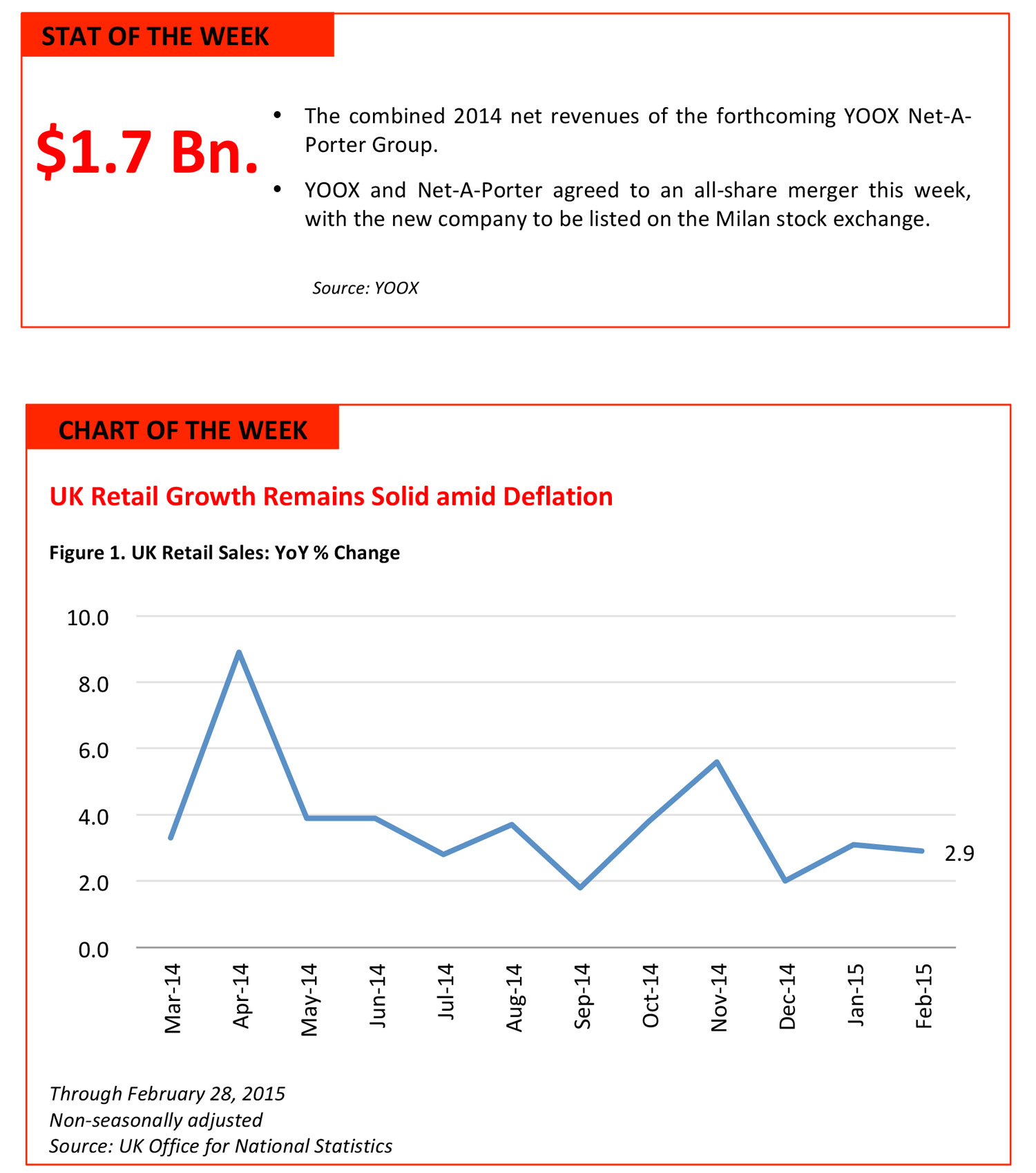
- Total retail sales growth remained solid in the UK in February, rising 2.9% despite retail price deflation of 2.0%, meaning that volume growth was nearly 5%.
- Deflation of 2.0% in the food retail sector weighed on grocers, whose sales were down 0.9% year over year.
- Clothing specialists enjoyed a bumper month, with sales climbing 7.5% year over year, albeit against an easy comparison in February 2014.
- Looking ahead, April is expected to prove a relatively weak month for total retail, given the early timing of Easter this year: an early Easter tends to hit sales in thegardening, do-‐it-‐yourself and outdoor living categories.
US RETAIL TRAFFIC
US Store Traffic Improved Due to Spring and Easter Shopping
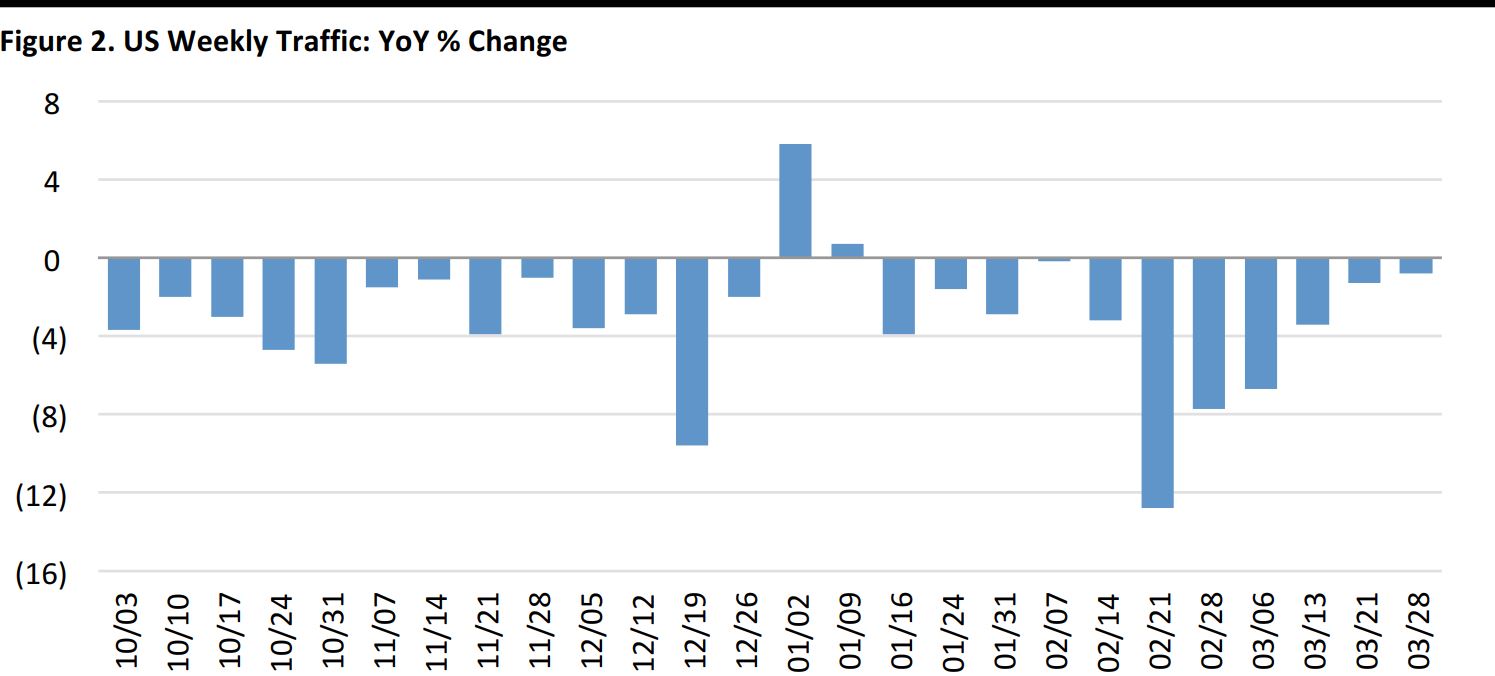
Through March 28, 2015
Source: ShopperTrak
- The US store traffic growth rate improved to (0.8%) for the week ended March 28 versus (1.3%) the previous week.
- Apparel store traffic grew by 2.5%, down from last week’s 3.8%, while electronics store traffic declined by 7.6%. A lack of inventory due to West Coast shipping problems is likely to have affected apparel sales.
US REGULAR GASOLINE PRICES
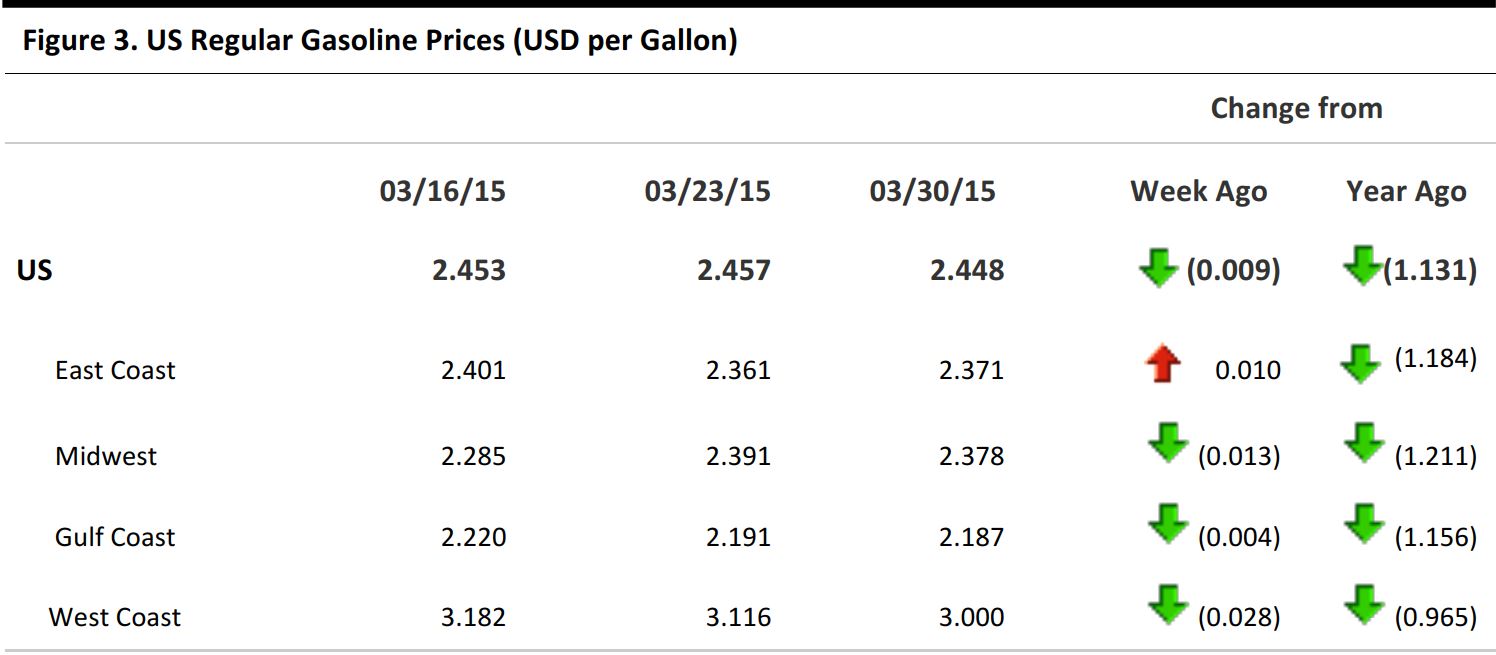
Source: US Energy Information Administration
US WEATHER ANALYTICS: Week of April 5–11
April to Begin on a Much Cooler Note than Last Year across North America, Limiting Spring Purchases
- Warm Easter last year. In the US last year, the week of April 5–11 was the warmest first week of retail April since 2002, driven by record heat in the West. Rainfall was near normal while snowfall was well below normal. Easter Sunday last year (April 20, 2014) was the warmest since 2011 in both the US and Canada, with below normal rainfall.
- Easter Sunday dry but cool for many. Those attending services or traveling for a holiday dinner can anticipate a drier day, as precipitation pushes off the East Coast. Cooler temperatures along with gusty winds are expected. Warmer temperatures will be confined to California and the Southwest.
- Cooler temperatures to suppress spring retail categories. Although the coming week was warm last year, a much cooler trend is anticipated for most markets this year. Year-over-year demand for warm weather apparel, cold drinks, lawn care and auto appearance products will decline.
Weather-Driven Demand: Lawn Fertilizers (10%) YoY
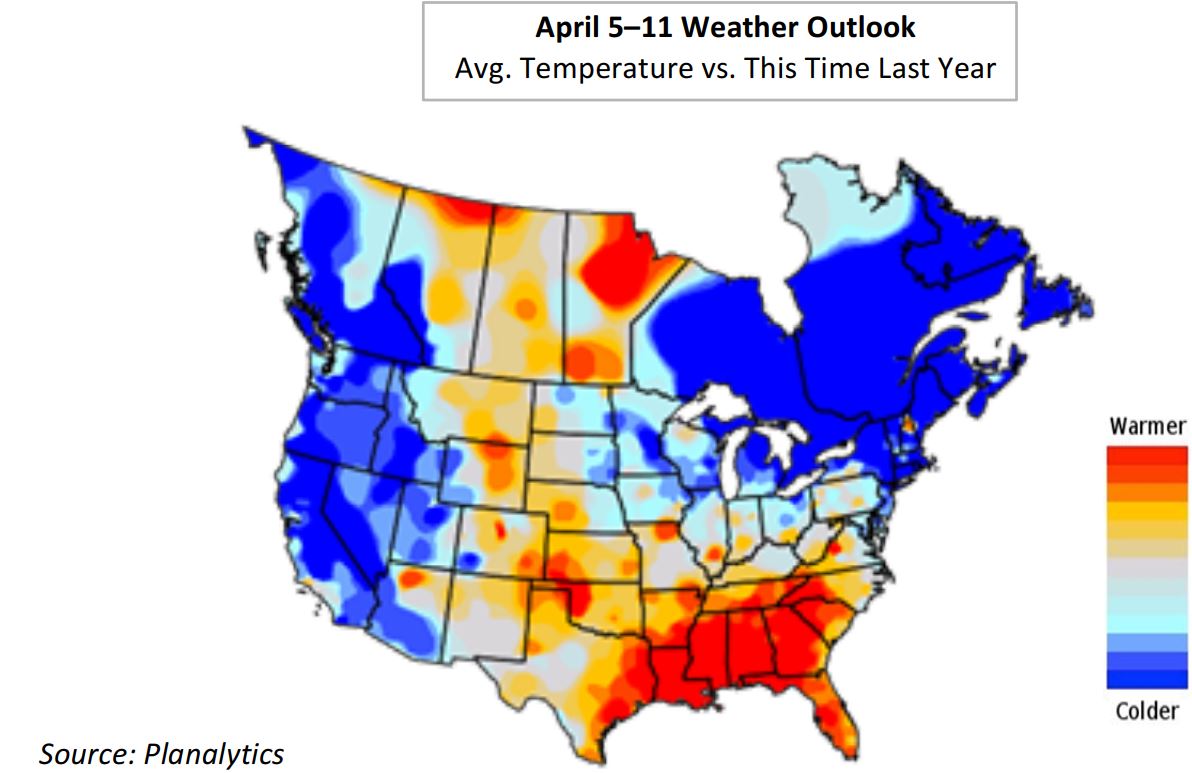
US PROMO HIGHLIGHTS
- Easter promotions are in full swing: Family Dollar’s Easter baskets start at $5; Walmart prepared a whole Easter feast at a savings; and Target’s Easter basket deals were in full bloom, with Easter treats starting at $0.89.
- Department stores are holding mid-season sales: Saks Fifth Avenue took $75 off online orders over $300 on women’s apparel; Macy’s claimed the lowest prices of the season as it promoted $20 off on purchases of $50 or more for many items; and Bloomingdale’s had a friends-and-family sale that ended on March 31 that included more items than previously covered in its 25%-off offer.
- CVS drugstores offered 30% off on exclusive brands all month, while rival Walgreens focused on Easter candy promotions.
RETAIL EARNINGS
 Source: Company reports
*Companies reporting in GBP
Source: Company reports
*Companies reporting in GBP
US RETAIL HEADLINES
 Amazon Introduces Dash Button
(April 1) Yahoo
Amazon Introduces Dash Button
(April 1) Yahoo
- Amazon introduced the Dash Button, a wireless one-button device that enables consumers to reorder household products from Amazon.com.
- Seventeen brands were signed up initially, including Bounty, Tide, Gillette, Olay, Glad, Clorox wipes, Cottonelle, Huggies, Gerber Formula, Lärabar, Kraft Mac & Cheese, Maxwell House coffee, Gatorade, Izze, Smartwater, L’Oréal Paris, and WellPet pet food.
- The button and service are free to Amazon Prime members.
 Amazon Launches Home Services Platform
(March 30) VentureBeat
Amazon Launches Home Services Platform
(March 30) VentureBeat
- Amazon launched a new platform to connect consumers with skilled handymen. This launch represents a wider rollout of last year’s offering in Los Angeles, San Francisco, Seattle and New York.
- The top services listed include “Lawn & Garden,” “Lessons” and “Automotive.” Amazon claims there are two million individual services available.
 Walmart Stresses Supplier Cost Cuts and Private-Label Products
(April 1) The Wall Street Journal and Bloomberg
Walmart Stresses Supplier Cost Cuts and Private-Label Products
(April 1) The Wall Street Journal and Bloomberg
- In an April 1 investor meeting, Walmart management said that it is telling suppliers to forgo investment in joint marketing programs and to plow the savings into lower prices.
- The growth of dollar stores has intensified price competition, and Walmart is seeking to regain share lost to competitors such as Kroger and Costco.
- Walmart is also focusing on its grocery business, including offering private-label products.
 Macerich Rejects Simon Property’s New Offer
(April 1) The Wall Street Journal
Macerich Rejects Simon Property’s New Offer
(April 1) The Wall Street Journal
- The possibility of the two rival malls uniting ended with Macerich rejecting Simon’s “best and final” offer of $16.8 billion ($95.5 per share).
- Simon and Macerich are currently the largest and the third-largest REITs in the US, respectively. Macerich’s share price closed down 2.3%, to $84.33, on Tuesday.
ASIA TECH HEADLINES
 Honda to Test Self-Driving Prototypes at Former US Naval Base
(April 1) Channel NewsAsia
Honda to Test Self-Driving Prototypes at Former US Naval Base
(April 1) Channel NewsAsia
- Honda Motor said Tuesday that it has joined Mercedes-Benz in testing self-driving vehicles and technologies on private roads at a former US naval facility outside San Francisco.
- The company also said it will test prototype versions of its Acura RLX sedan fitted with sensors and cameras that could be used on future self-driving vehicles. The former naval base has 20 miles of paved roads and a variety of buildings and is not open to the public.
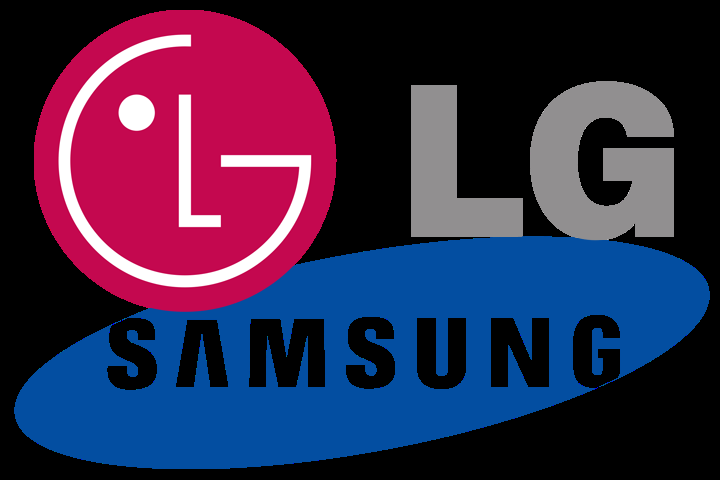 Samsung and LG Agree to End Legal Battles
(April 1) ZDNet
Samsung and LG Agree to End Legal Battles
(April 1) ZDNet
- Rival South Korean tech giants Samsung and LG have signed an agreement to end all ongoing legal battles with each other and settle all conflicts with discussion rather than litigation.
- Samsung and LG will withdraw their lawsuits and request leniency for each other from the authorities. Criminal cases in South Korea do not automatically end when plaintiffs withdraw their lawsuits, and authorities can still punish defendants.
 Alibaba Signs Digital Distribution Deal with Music Rights Group BMG
(March 30) Channel NewsAsia
Alibaba Signs Digital Distribution Deal with Music Rights Group BMG
(March 30) Channel NewsAsia
- Germany’s BMG music rights company said on Monday it had signed a digital distribution deal with China’s Alibaba Group, the world’s largest e-commerce firm, which is looking to become a digital media empire.
- Alibaba, with a current market value of US$210 billion, has set its eyes on becoming an online-media powerhouse, with music, film and television offerings. The company has touted its potential for selling digital products as well as physical products in China, despite the country’s track record of users not paying for media content.
 Chinese Carpooling App Dida in Partnership Talks with Uber
(March 30) Channel NewsAsia
Chinese Carpooling App Dida in Partnership Talks with Uber
(March 30) Channel NewsAsia
- An early investor in Chinese carpooling app Dida Pinche said he has held talks with US ride-hailing service Uber about helping Dida grow in a market that is 99% controlled by Didi Dache and Kuaidi Dache.
- Ride-sharing apps have struggled, as regulators in Beijing and other cities across the world have banned apps that earn revenue from drivers who do not hold commercial licenses.
 China to Punish Tencent, Youku Tudou and Other Video Sites for Pornography
(March 31) Channel NewsAsia
China to Punish Tencent, Youku Tudou and Other Video Sites for Pornography
(March 31) Channel NewsAsia
- China will punish Internet companies Tencent, Youku Tudou and Baidu’s iQiyi, among others, for hosting videos suspected of containing violence and pornography, which authorities said causes juvenile delinquency.
- As of April 1, China’s online video sites will be subject to new regulations that tighten control of foreign content. Websites that have not received approval for their foreign programs by then will be prohibited from broadcasting the media.
 Indonesia’s Orori 3D Prints High-End Jewelry on Demand, Lets Users Design Their Own
(March 30) Tech in Asia
Indonesia’s Orori 3D Prints High-End Jewelry on Demand, Lets Users Design Their Own
(March 30) Tech in Asia
- High-end 3D-printed jewelry has just arrived on the Web in Indonesia. An online store called Orori, which was established in 2012, launched a revamped site with new 3D printing options last week in Jakarta.
- With the help of 3D printing, Orori has incorporated a new “Design My Own” feature that lets users create custom designs for their jewelry. In effect, the user-generated content also increases the number of SKUs that Orori offers. Off-the-shelf jewelry is still available for those who don’t want to play at being a designer.
 How Western Ed Tech Startup Monkimun Raised $1 Million, and How It Plans to Take on Asia
(March 31) Tech in Asia
How Western Ed Tech Startup Monkimun Raised $1 Million, and How It Plans to Take on Asia
(March 31) Tech in Asia
- US- and Spain-based mobile startup Monkimun raised funds from Singapore’s Incuvest and Japan’s SHOzemi Innovation Ventures.
- The company plans to launch a subscription-based adaptive-learning platform that provides kids with a fun and immersive learning experience while also tracking their performance and adapting lesson difficulty.
 Japanese News App SmartNews Nabs $10M Bridge Round at a $320 Million Valuation
(March 31) Tech in Asia
Japanese News App SmartNews Nabs $10M Bridge Round at a $320 Million Valuation
(March 31) Tech in Asia
- The back-and-forth continues between SmartNews and Gunosy, Japan’s premier news apps, which are taking their domestic war global. A week after Gunosy filed for a US$263 million IPO, SmartNews nabbed a US$10 million bridge round at a pre-money valuation of US$320 million.
- SmartNews added one million monthly active users in the US, adding to its four million in Japan. Its international app, which launched in 150 countries last month, has been downloaded 10 million times.
 Xiaomi Expands Home and Health Line with New Smart Scales Priced at Just $16
(March 31) Tech in Asia
Xiaomi Expands Home and Health Line with New Smart Scales Priced at Just $16
(March 31) Tech in Asia
- Xiaomi unveiled five products to mark its fifth anniversary. Four are simply upgrades of existing items, and the company also introduced a new device as part of its ongoing health and smart home portfolio: a smart scale.
- Xiaomi occupies an advantageous position in China’s smart home industry compared with Alibaba, Baidu, Tencent and other hardware companies. By directing consumers to its website to buy smartphones, the company has created valuable e-commerce real estate, which it can leverage to sell related products.
EUROPE/UK RETAIL HEADLINE
 ASOS Profits Drop 10% Despite a Record Christmas Season
(April 1) Retail-Week.com
ASOS Profits Drop 10% Despite a Record Christmas Season
(April 1) Retail-Week.com
- Online fashion retailer ASOS reported a 10% drop in profits, to £18 million (US$27 million) for the six months ending February 28, 2015. Citing planned investment in its global distribution capacity and the reimbursement of £6.3 million (US$9 million) after a warehouse fire, CEO Nick Roberts noted a gross margin decrease of 230 basis points and a dip in half-year profits before tax.
- Encouragingly, the e-tailer also reported a 14% rise in total retail sales for the Christmas season, bringing the figure to £536.4 million (US$7.5 million).
 Galeries Lafayette Prioritizes E-Commerce as It Closes Two Stores
(April 1) WGSN
Galeries Lafayette Prioritizes E-Commerce as It Closes Two Stores
(April 1) WGSN
- French department store Galeries Lafayette said it plans to close two unprofitable domestic stores, which will result in the loss of 150 jobs. The retailer is looking to cut costs as it seeks to improve its e-commerce site and continue with international expansion.
- Another 90 jobs will be cut from its head office and 60 from logistics-based positions. Galeries Lafayette has, however, told unions that it will seek to reemploy staff within other areas of the group.
 Sainsbury’s Invests in Specialist Digital Team to Develop In-Store Technology
(March 31) Retail-Week.com
Sainsbury’s Invests in Specialist Digital Team to Develop In-Store Technology
(March 31) Retail-Week.com
- Grocery retailer Sainsbury’s is creating nearly 500 new specialist jobs in a bid to fulfill its in-house digital objectives. The company is looking to play a more prominent role in developing innovative technologies to help it connect with shoppers on a more personal level.
- In addition to strengthening Sainsbury’s existing website and mobile shopping app, the newly formed team will be tasked with creating and implementing new technology systems. Many of these systems will focus on upgrading the retailer’s current infrastructure to help it stay relevant in the changing grocery industry.
 Prada Profits Fall Lower than Analysts Predicted
(March 30) FT.com
Prada Profits Fall Lower than Analysts Predicted
(March 30) FT.com
- For the first time in four years, Italian luxury fashion brand Prada has reported a drop in annual net profit. In the year ended January 31, the company’s net income fell from €628 million (US $932 million) to €451 million (US$ 669 million), a drop of €17 million (US$ 25 million) more than analysts had estimated.
- The results have prompted Prada to implement a cost-cutting strategy that it says will have noticeable effects in next year’s results.
 Chanel to Launch Transactional Apparel Website for the First Time
(April 1) RetailDetail.eu
Chanel to Launch Transactional Apparel Website for the First Time
(April 1) RetailDetail.eu
- French fashion brand Chanel has announced plans to launch an official website in 2016. It appears that a complete change of strategy for the luxury retailer that once said “Fashion is about clothing, and clothing you need to see, to feel, to understand,” but the company’s objective is actually to raise the profile of affiliates Causse, Barrie Knitwear and Maison Michel.
- Chanel has not yet given details on how it will implement this new approach, but watchers believe the site will focus on creating better service rather than following the objectives of traditional e-commerce business.
 YOOX and Net-A-Porter to Create the World’s Largest Luxury-Focused E-Tailer
(March 31) FT.com
YOOX and Net-A-Porter to Create the World’s Largest Luxury-Focused E-Tailer
(March 31) FT.com
- Italian online fashion retailer YOOX has confirmed plans for an all-share merger with London-based Net-A-Porter. With combined sales of around €1.3 billion (US $1.4 billion), the merged companies will represent the world’s largest luxury e-tailer, with an estimated 24 million visitors per month to its sites.
- YOOX shares rose 4% in Milan following the announcement of the deal.
LATAM RETAIL HEADLINES
 President Fernandez de Kirchner Outlines Stimulus Plan
(March 26) Bloomberg
President Fernandez de Kirchner Outlines Stimulus Plan
(March 26) Bloomberg
- The Argentine government outlined several plans to subsidize consumer goods, ahead of presidential elections in October.
- Plans include ARS$3 billion (US$340.7 million) to subsidize bottled gas, fix taxi rates, offer discounts for energy-efficient appliances and subsidize transit-card users’ purchases at retail shops.
- The president’s approval rating rose to 36.1% in March from 29.8% in February, according to a recent opinion poll.
 Brazil Industrial Production Declined in February
(April 1) The Rio Times
Brazil Industrial Production Declined in February
(April 1) The Rio Times
- Industrial production in Brazil declined by 0.3% in February from January, when it had turned positive after two months in a row of declines.
- decline were automobile production, tobacco, and IT and electronic equipment.
 Brazil Main Growth Market for Carrefour
(April 1) FreshPlaza
Brazil Main Growth Market for Carrefour
(April 1) FreshPlaza
- Carrefour’s revenue from Brazil grew 11.9% in 2014, far ahead of a 3.9% increase in corporate sales.
- As of the end of 2014, the company operated 830 stores in Latin America, up from 762 at the end of 2013.
- Carrefour is one of Brazil’s top 10 retail firms and has had a presence in Brazil since 1975.
 Cencosud Reports Solid 4Q2014
(March 30) RetailAnalysis.igd.com
Cencosud Reports Solid 4Q2014
(March 30) RetailAnalysis.igd.com
- Cencosud reported 7.0% revenue growth for the fourth quarter of 2014, with higher sales in all divisions.
- Revenue from supermarkets increased by 7.7%, driven by higher same-store sales in all five markets plus the contribution from 12 new stores.
- Same-store sales were up 6.2% in Chile and 28.7% in Argentina, but down 2.6% in Brazil.
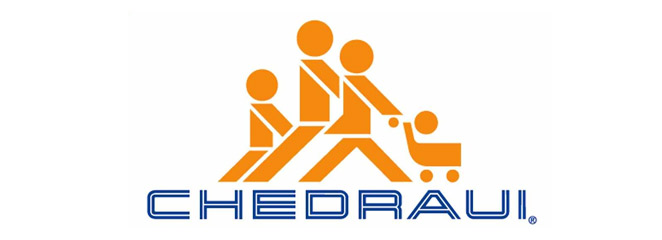 Chedraui Claims No Legal Action in US
(April 1) El Universal
Chedraui Claims No Legal Action in US
(April 1) El Universal
- On March 25, El Universal reported a labor conflict in which civilian organizations are conducting a boycott and employees are threatening to go on strike.
- Chedraui reported that its business is operating normally and informed the Mexican Stock Exchange that the labor dispute would have no effect on first-quarter 2015 financial results.
- The dispute stems from seven of 49 stores operated in Southern California under the trade name “El Super.”
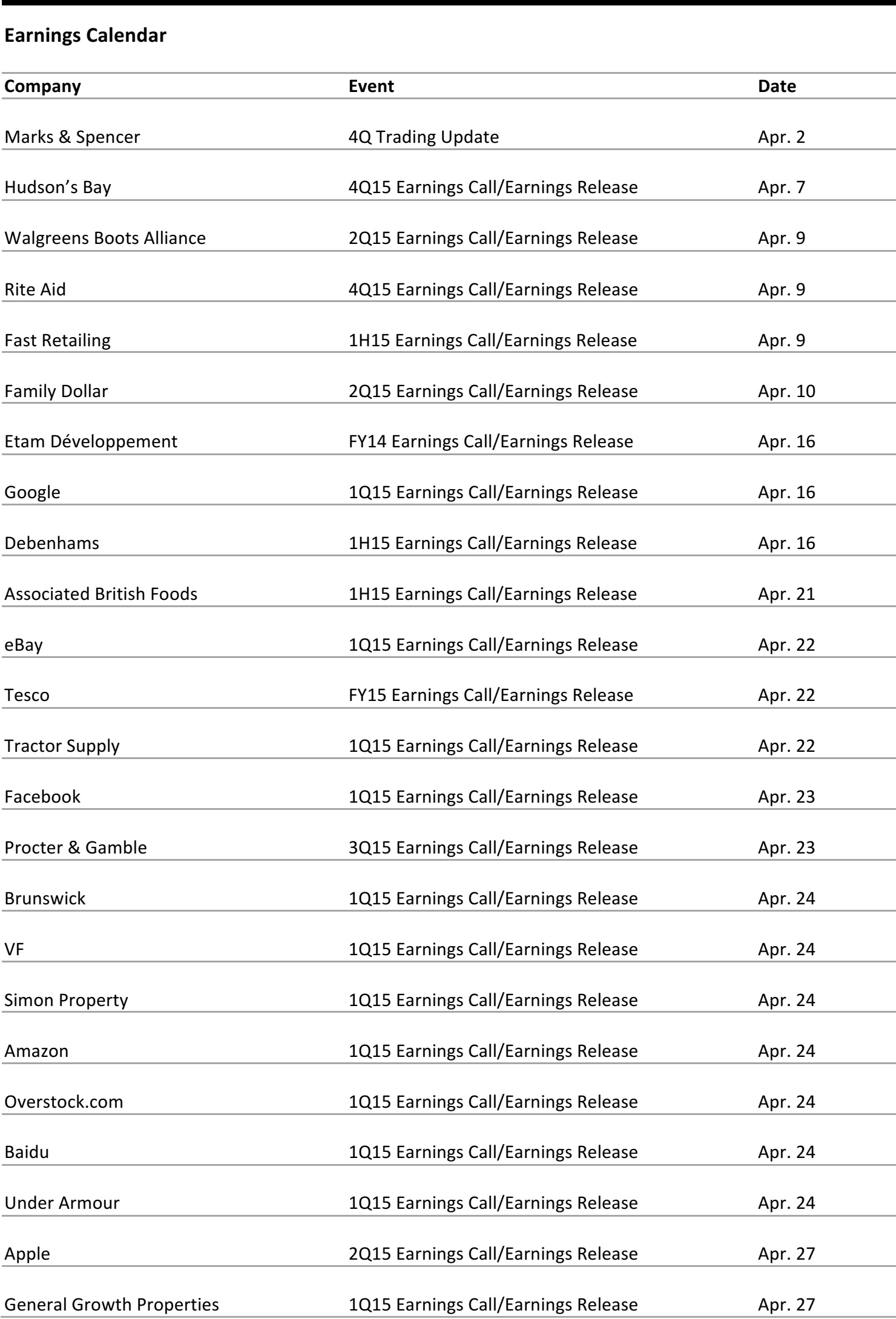
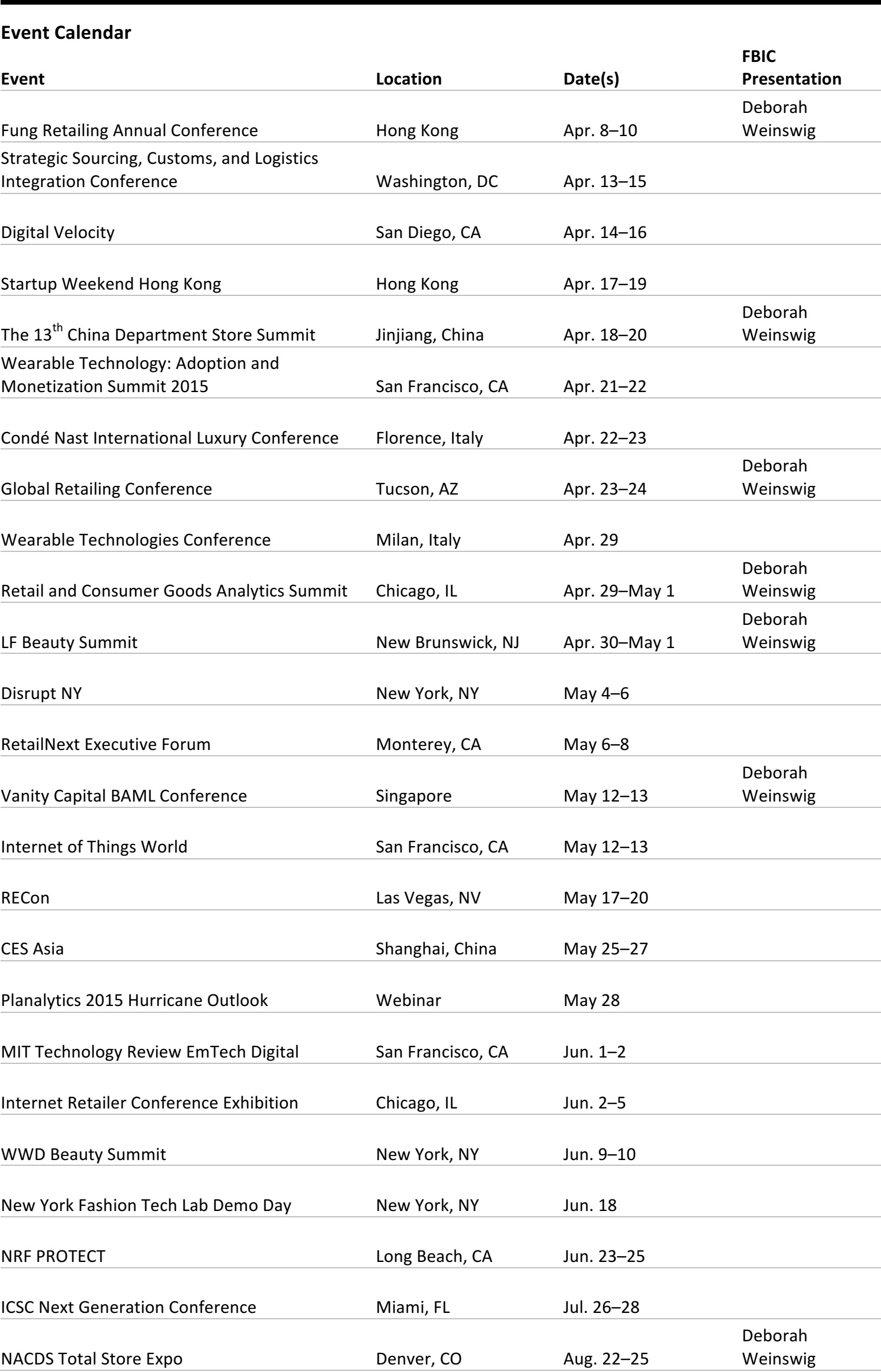

 While promotions continue to this day, a better strategy is to provide differentiated product. To that end, Nordstrom has brought more relevant brands Topshop and J.Crew’s Madewell into selected stores to attract a modern young fashionista. Forward-thinking Macy’s began to seriously cultivate the millennial shopper in 2012, and 2014 marked its best business with that demographic in the past six years. Macy’s just launched its Thalia Sodi line, which is named after the superstar Latin Grammy winner and will likely draw youthful and Hispanic shoppers. Retailers are offering private label, exclusive and limited-edition collections to mitigate price comparisons while attracting discriminating fashion shoppers.
In addition to transforming the modern department store into an omnichannel shopping/distribution and pickup center, retailers are taking a serious look at their real estate investments. One of America’s oldest retailers, Sears, retains only a shadow of its former glory despite operating 979 Kmarts as well as 717 full-line Sears stores. It plans to lease about 520,000 square feet in seven US Sears locations to Primark, the Irish low-priced-fashion retailer, beginning later this year. Primark is a very popular cheap fashion alternative for London’s millennials and is likely to do well in the US, too. It’s worth remembering that this demographic in the US grew up on fast fashion and cheap alternatives during the Great Recession. Branded apparel isn’t the status arbiter it was in the ’90s, when Abercrombie & Fitch and American Eagle Outfitters were growing. Brands still matter, today they are Apple and Nike.
Along with this repurposing of retail real estate, Sears has filed plans with the SEC for its REIT, Seritage Growth Properties. The plans include a rights offering by Seritage to partially finance the purchase of 254 Sears and Kmart properties, the proceeds of which are projected to be over $2.5 billion. Also, Sears and General Growth Properties entered into a joint venture for 12 Sears properties, for which General Growth made a $165 million cash contribution for its 50%. These moves allow Sears to reduce its retail footprint and reconfigure space with third-party tenants while providing a significant boost to its liquidity and a likely positive for its credit quality.
Newness and value are reliable traffic drivers and department stores have gotten the message not a moment too soon. The next 12 months are bound to be interesting!
While promotions continue to this day, a better strategy is to provide differentiated product. To that end, Nordstrom has brought more relevant brands Topshop and J.Crew’s Madewell into selected stores to attract a modern young fashionista. Forward-thinking Macy’s began to seriously cultivate the millennial shopper in 2012, and 2014 marked its best business with that demographic in the past six years. Macy’s just launched its Thalia Sodi line, which is named after the superstar Latin Grammy winner and will likely draw youthful and Hispanic shoppers. Retailers are offering private label, exclusive and limited-edition collections to mitigate price comparisons while attracting discriminating fashion shoppers.
In addition to transforming the modern department store into an omnichannel shopping/distribution and pickup center, retailers are taking a serious look at their real estate investments. One of America’s oldest retailers, Sears, retains only a shadow of its former glory despite operating 979 Kmarts as well as 717 full-line Sears stores. It plans to lease about 520,000 square feet in seven US Sears locations to Primark, the Irish low-priced-fashion retailer, beginning later this year. Primark is a very popular cheap fashion alternative for London’s millennials and is likely to do well in the US, too. It’s worth remembering that this demographic in the US grew up on fast fashion and cheap alternatives during the Great Recession. Branded apparel isn’t the status arbiter it was in the ’90s, when Abercrombie & Fitch and American Eagle Outfitters were growing. Brands still matter, today they are Apple and Nike.
Along with this repurposing of retail real estate, Sears has filed plans with the SEC for its REIT, Seritage Growth Properties. The plans include a rights offering by Seritage to partially finance the purchase of 254 Sears and Kmart properties, the proceeds of which are projected to be over $2.5 billion. Also, Sears and General Growth Properties entered into a joint venture for 12 Sears properties, for which General Growth made a $165 million cash contribution for its 50%. These moves allow Sears to reduce its retail footprint and reconfigure space with third-party tenants while providing a significant boost to its liquidity and a likely positive for its credit quality.
Newness and value are reliable traffic drivers and department stores have gotten the message not a moment too soon. The next 12 months are bound to be interesting!




 Source: Company reports
*Companies reporting in GBP
Source: Company reports
*Companies reporting in GBP Honda to Test Self-Driving Prototypes at Former US Naval Base
(April 1) Channel NewsAsia
Honda to Test Self-Driving Prototypes at Former US Naval Base
(April 1) Channel NewsAsia
 Chinese Carpooling App Dida in Partnership Talks with Uber
(March 30) Channel NewsAsia
Chinese Carpooling App Dida in Partnership Talks with Uber
(March 30) Channel NewsAsia
 Indonesia’s Orori 3D Prints High-End Jewelry on Demand, Lets Users Design Their Own
(March 30) Tech in Asia
Indonesia’s Orori 3D Prints High-End Jewelry on Demand, Lets Users Design Their Own
(March 30) Tech in Asia

